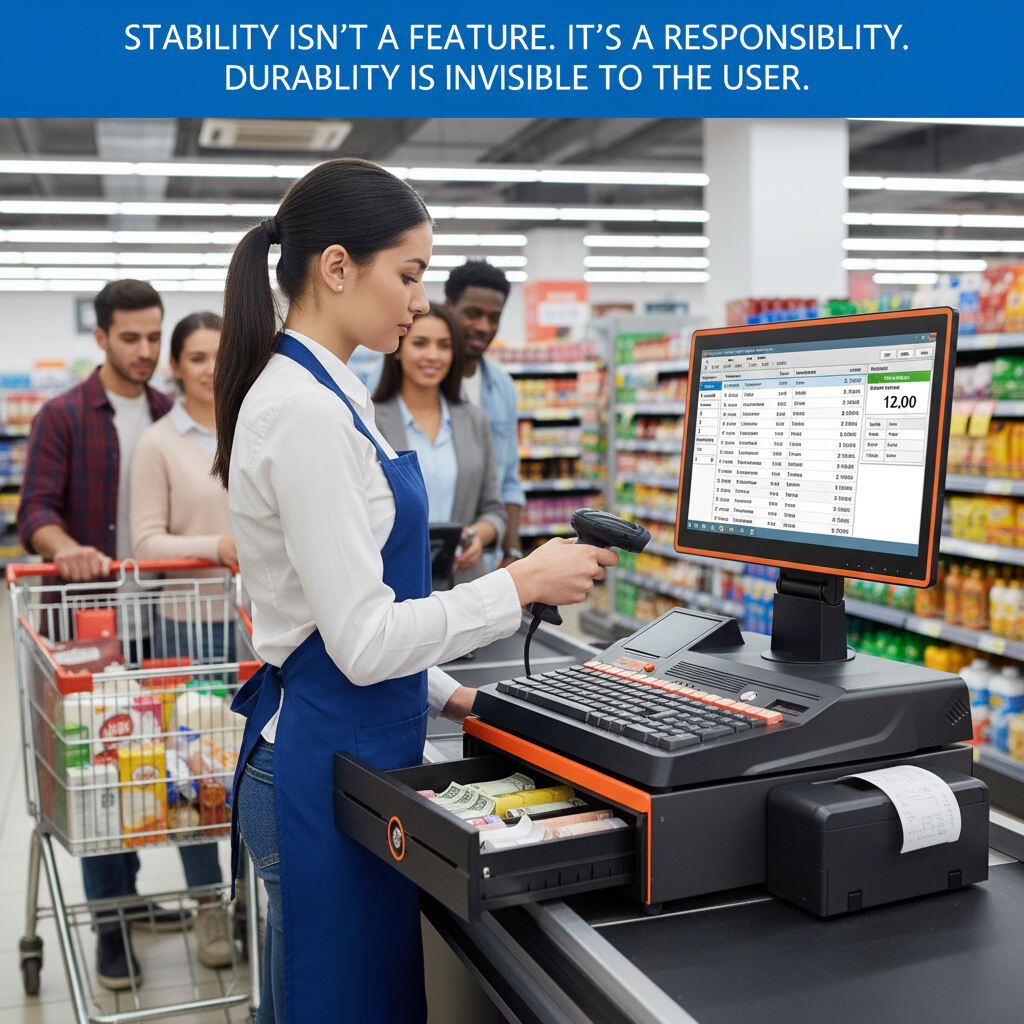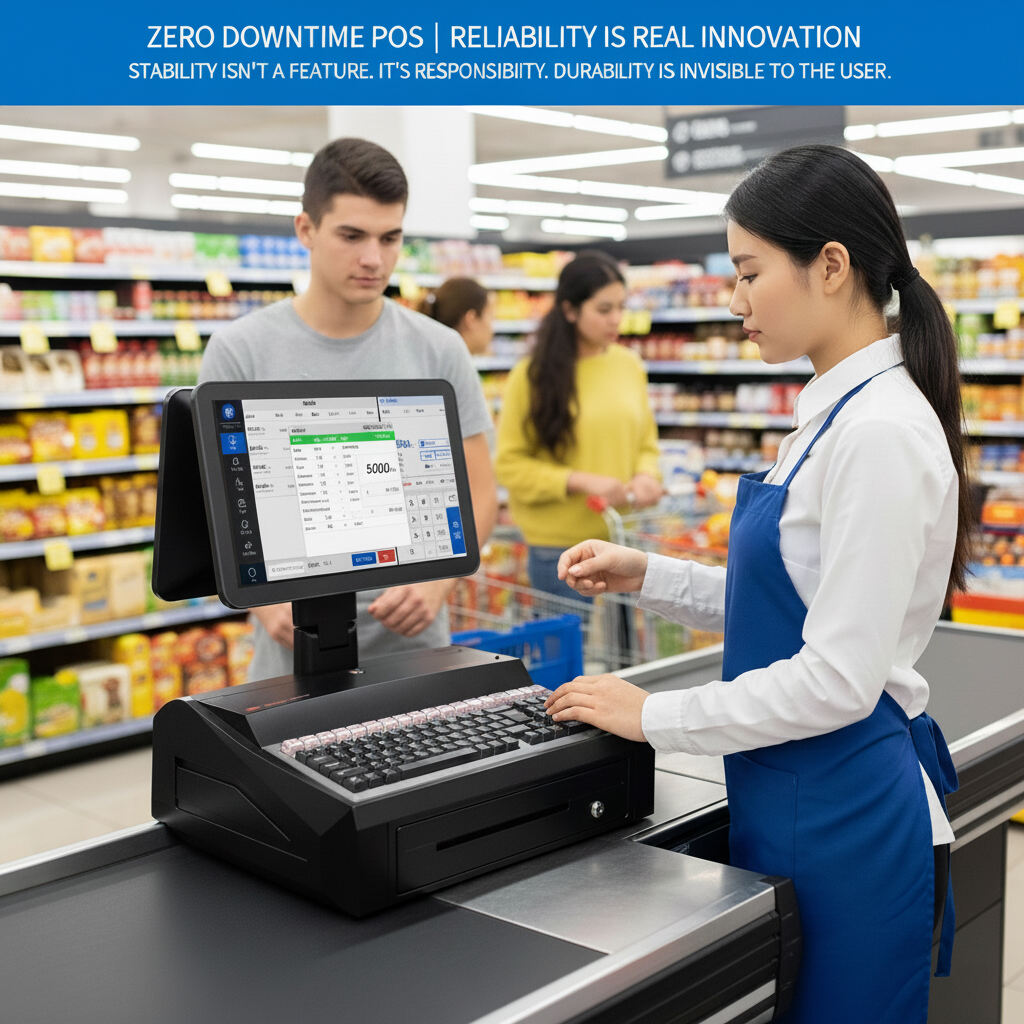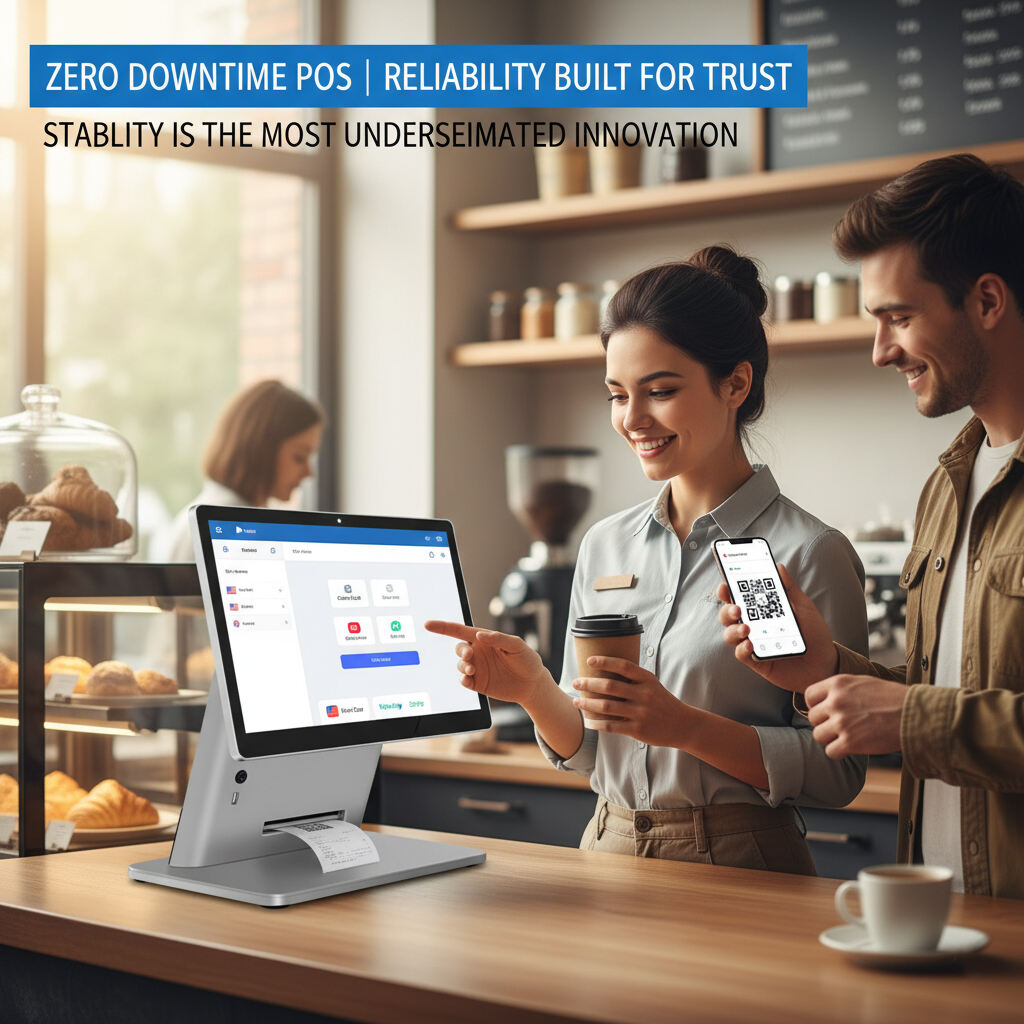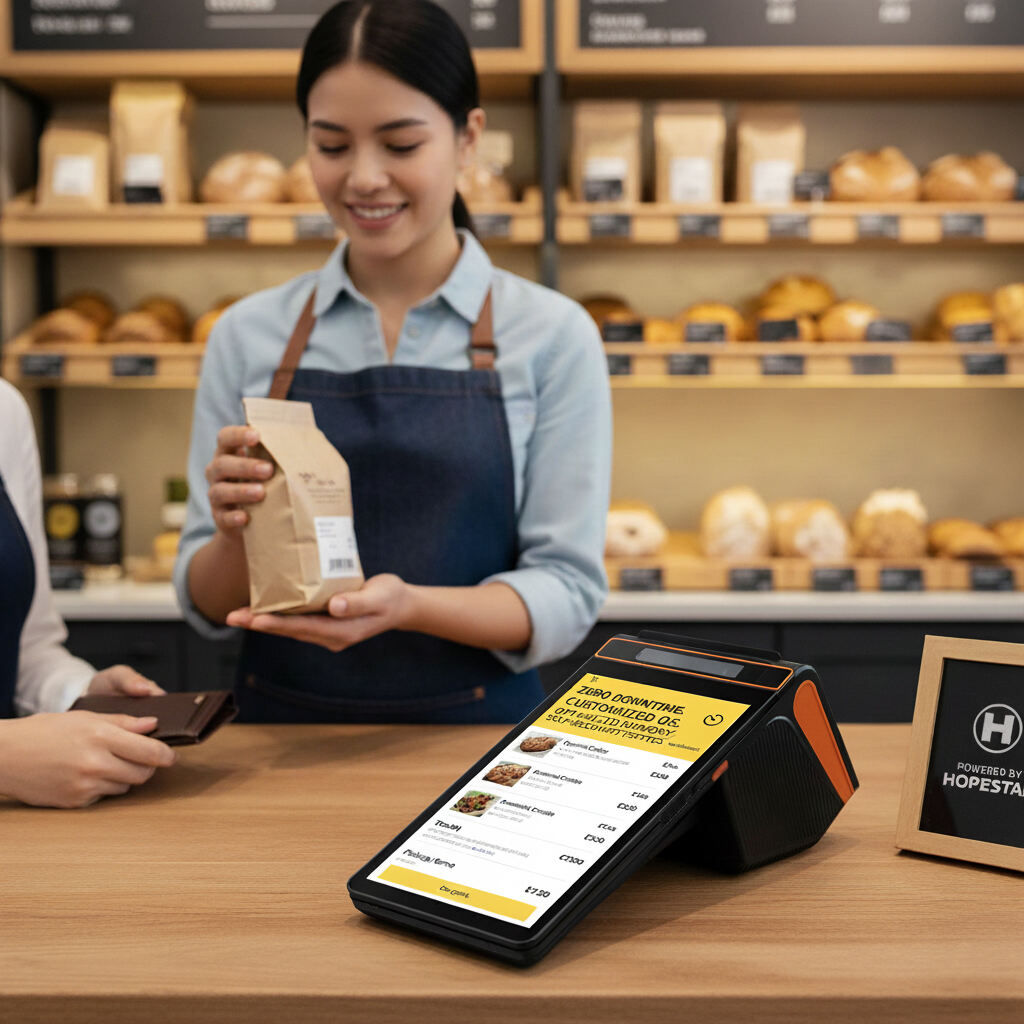News
Have any questions?
Please feel free to contactus. We will get back to you as soon as.
+86-13501581295 +86-13501581295 [email protected]
Building the Future of Reliability: The Making of the Zero Downtime POS
Introduction: When Reliability Defines a Business
In retail, every second matters. Imagine a busy supermarket during peak hours—lines growing, customers waiting—when the POS system freezes. One crash can ripple through an entire operation, affecting not just sales, but also trust and customer satisfaction.
From the earliest stages of development, the mission for modern POS terminals has been clear: to deliver devices that never fail, even under the harshest conditions. In specialized testing labs, engineers call this pursuit “Zero Downtime POS”. It is more than a concept—it is a mindset, a discipline, and a commitment to operational reliability.
From Field Reports to Engineering Insights
Every exceptional product begins with listening to the field. Engineering teams regularly review global support data—every minor crash, power glitch, or performance anomaly is logged, analyzed, and addressed.
“We treat every failure as a clue,” says a Senior R&D Manager. “When a POS terminal in Latin America restarts unexpectedly after prolonged use, we don’t just patch it. We simulate it, stress-test it, and trace the issue down to the code or hardware level.”
This feedback-driven approach informs the engineering philosophy: each product improvement is designed for real-world environments—restaurant heat, warehouse dust, and unstable power grids. The goal is simple yet demanding: a POS system that never interrupts transactions.
From these processes came the internal mantra: “Stability isn’t a feature. It’s a responsibility.”

Engineering Reliability: Hardware That Withstands Real-World Conditions
Reliability begins at the board level, long before any software runs. Hardware engineers design rugged POS devices capable of withstanding industrial environments, not just office settings.
Inside the R&D center, small chambers simulate 50°C heat, where new models undergo 7×24-hour stress tests. Another lab recreates vibration, humidity, and voltage fluctuations typical of retail environments across the globe.
Each POS terminal integrates industrial-grade capacitors, solid-state storage, and heat-efficient board layouts. Power management modules are built with redundancy to prevent sudden shutdowns, and fanless aluminum enclosures enhance heat dissipation and reduce dust accumulation.
“Durability is invisible to the user, but it’s everything to us,” explains a mechanical engineer. “A stable mainboard layout can save a customer thousands of hours of downtime over the device’s lifetime.”
This uncompromising hardware approach ensures that Android POS machines remain reliable from the inside out.

Software Stability: Optimizing Android for Continuous Operation
Hardware is only half the story. To achieve true “zero downtime”, software engineers optimize Android POS systems at the kernel level.
Custom POS firmware features optimized memory management, self-recovery scripts, and watchdog services that prevent application-level failures from halting operations. Each deployment is tailored to its workload—receipt printing, NFC transactions, barcode scanning, and more.
“Commercial stability depends on predictable behavior,” says a Lead Software Architect. “We developed recovery mechanisms that reboot critical services automatically before the user notices any issue.”
This philosophy extends to OEM and customization projects. Multi-language interfaces, offline caching, and local payment system integration ensure reliable performance even in unstable network conditions.
The result is a portfolio of POS systems built for uptime, not for benchmark scores.
Quality System and the “Zero Downtime” Culture
Behind every product release is a cross-department review ritual known internally as the “Red Line Review”. Hardware, software, and production teams test the weakest points of each device to detect failures before reaching the market.
POS terminals are subjected to continuous 1,000-hour operation tests. Devices that fail even once are returned for root-cause analysis. “We don’t count passed tests; we count hours survived,” says a QA Director.
This “zero downtime” culture permeates the company. Engineers treat uptime like athletes treat form—measured, disciplined, and obsessive. Testing is not a stage; it is a belief.
This mindset makes the POS hardware suitable for industrial deployments—from retail chains, QSR systems, government kiosks, to transportation hubs.

Innovation Beyond Marketing: Reliability as a Differentiator
In a market crowded with lookalike devices, operational reliability becomes the key differentiator. While competitors focus on specs, the emphasis here is on trust, consistency, and uptime.
Every “zero crash” milestone signals to partners that they can build scalable, interruption-free solutions with confidence. For system integrators, distributors, and OEM clients, this translates into fewer service calls, smoother rollouts, and higher end-user satisfaction.
Today, these industrial POS terminals are deployed in over 70 countries, serving operations that cannot tolerate downtime—from retail POS counters to smart vending machines, healthcare registration points, and logistics check-in systems.
“We don’t design for showrooms. We design for 3 a.m. in a busy convenience store, where every tap must work,” says an R&D Director.

Conclusion: Stability Is the Ultimate Innovation
The journey toward the “zero downtime POS” is about mindset and precision engineering. Every millisecond of uptime earns customer trust.
For system integrators, distributors, and OEM partners seeking reliable POS solutions, these devices offer more than hardware—they provide a philosophy of precision, resilience, and operational trust.
Partner with experts in POS reliability to build the next generation of high-performance, uninterrupted solutions



